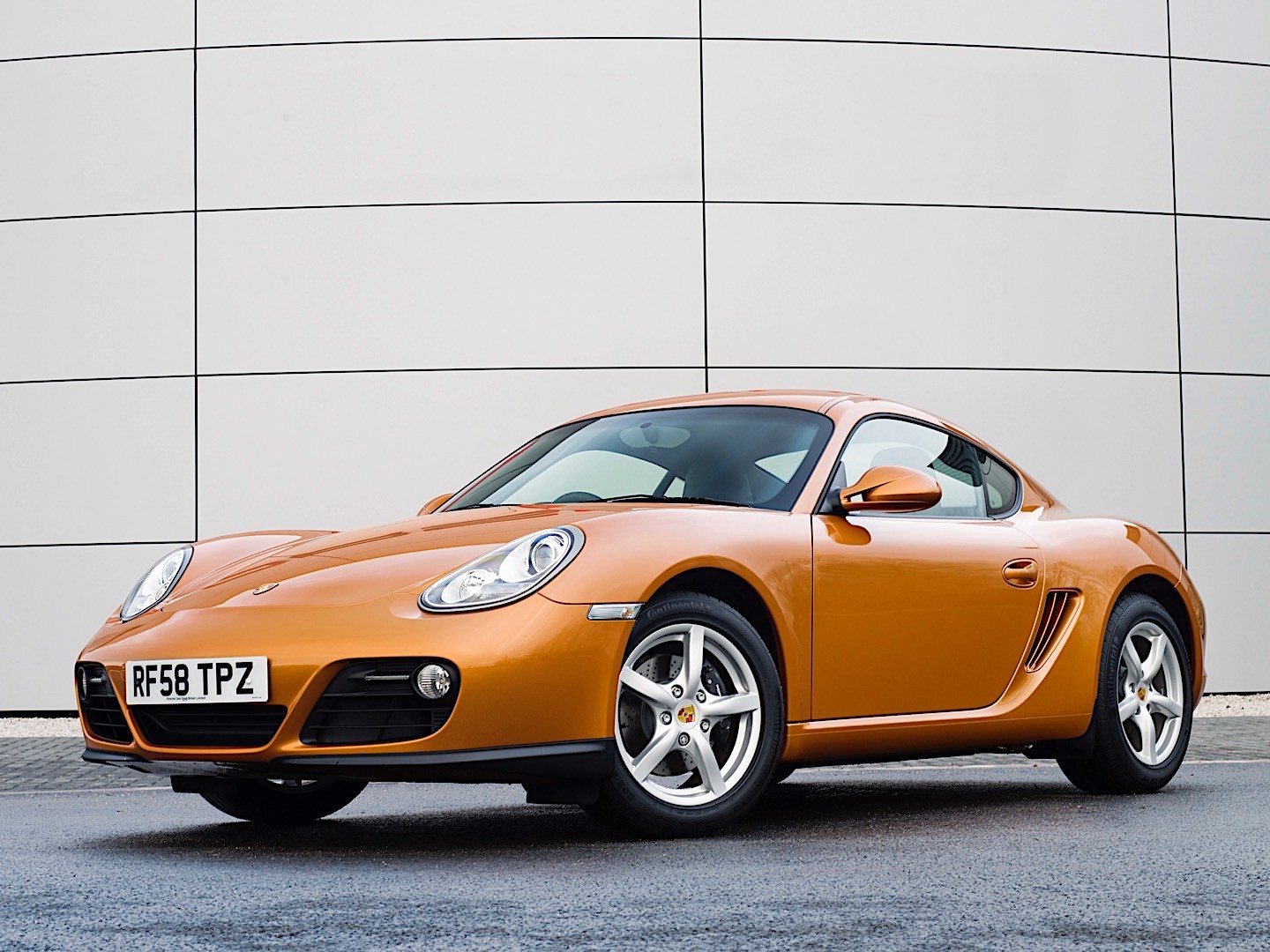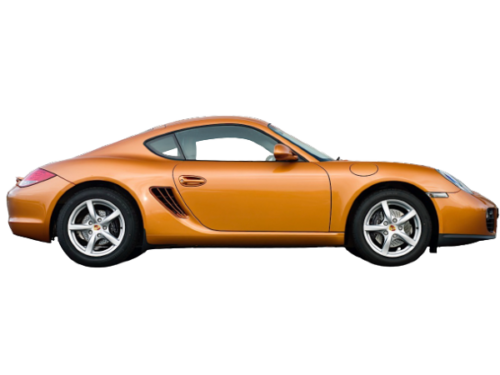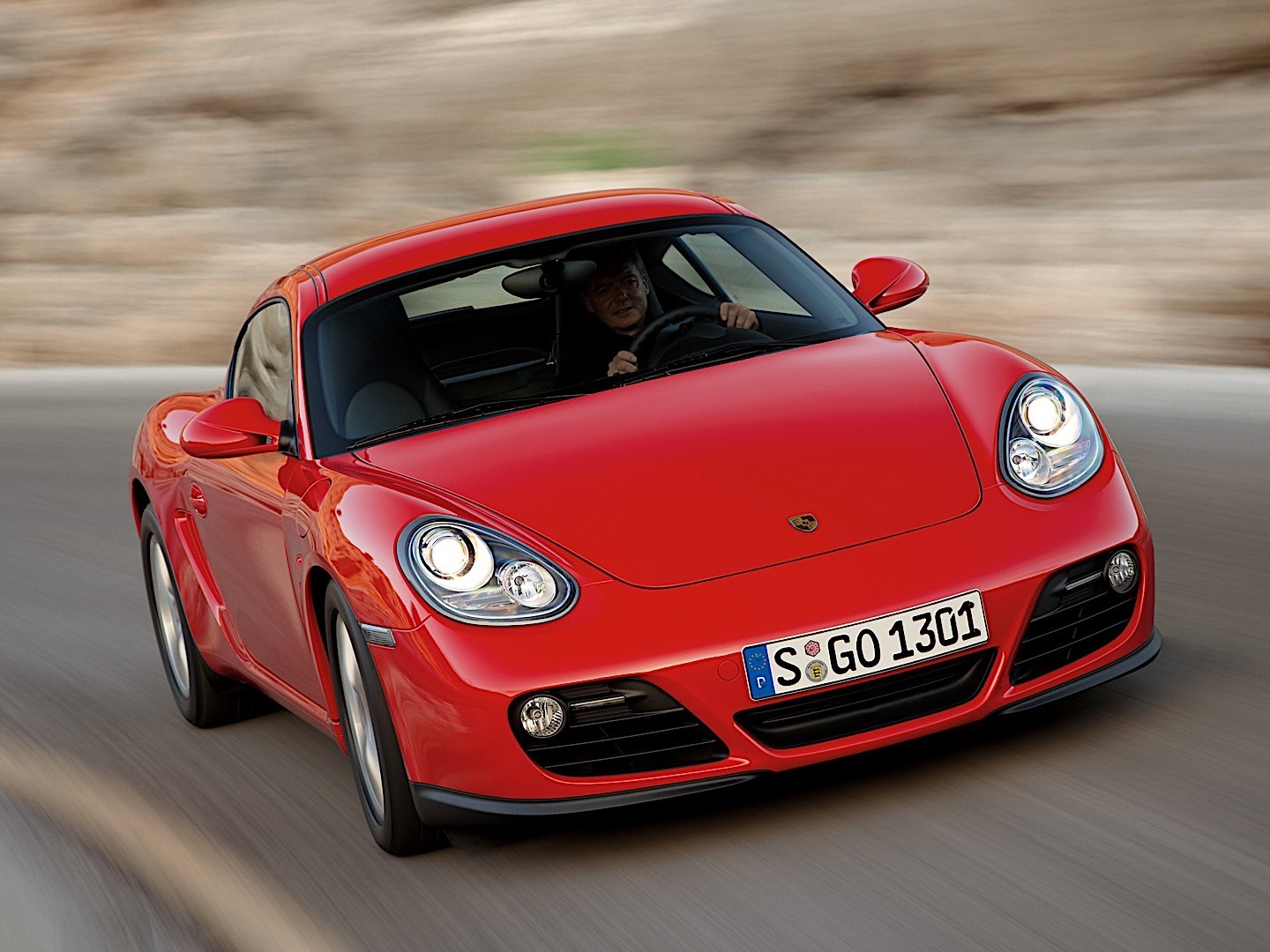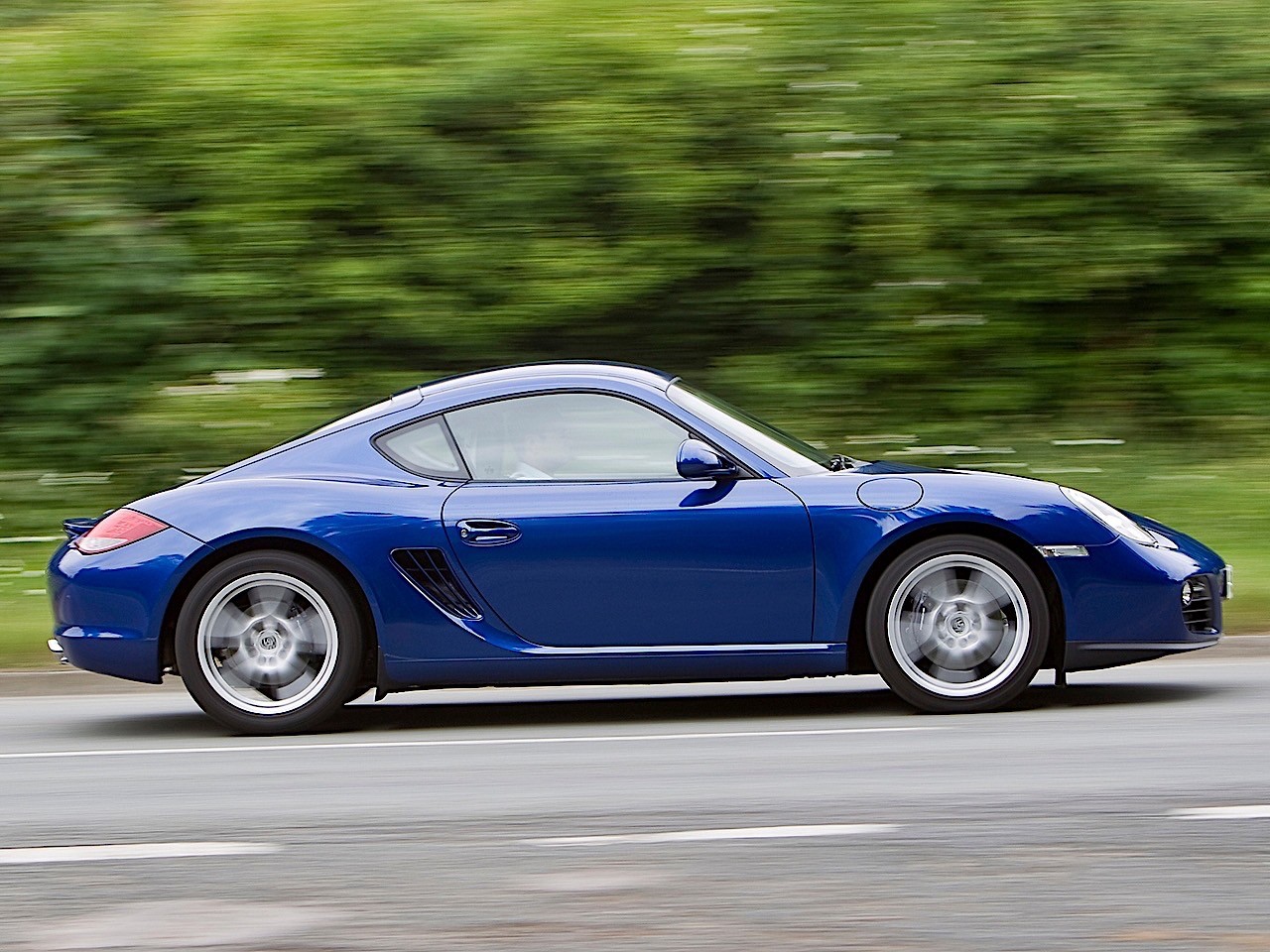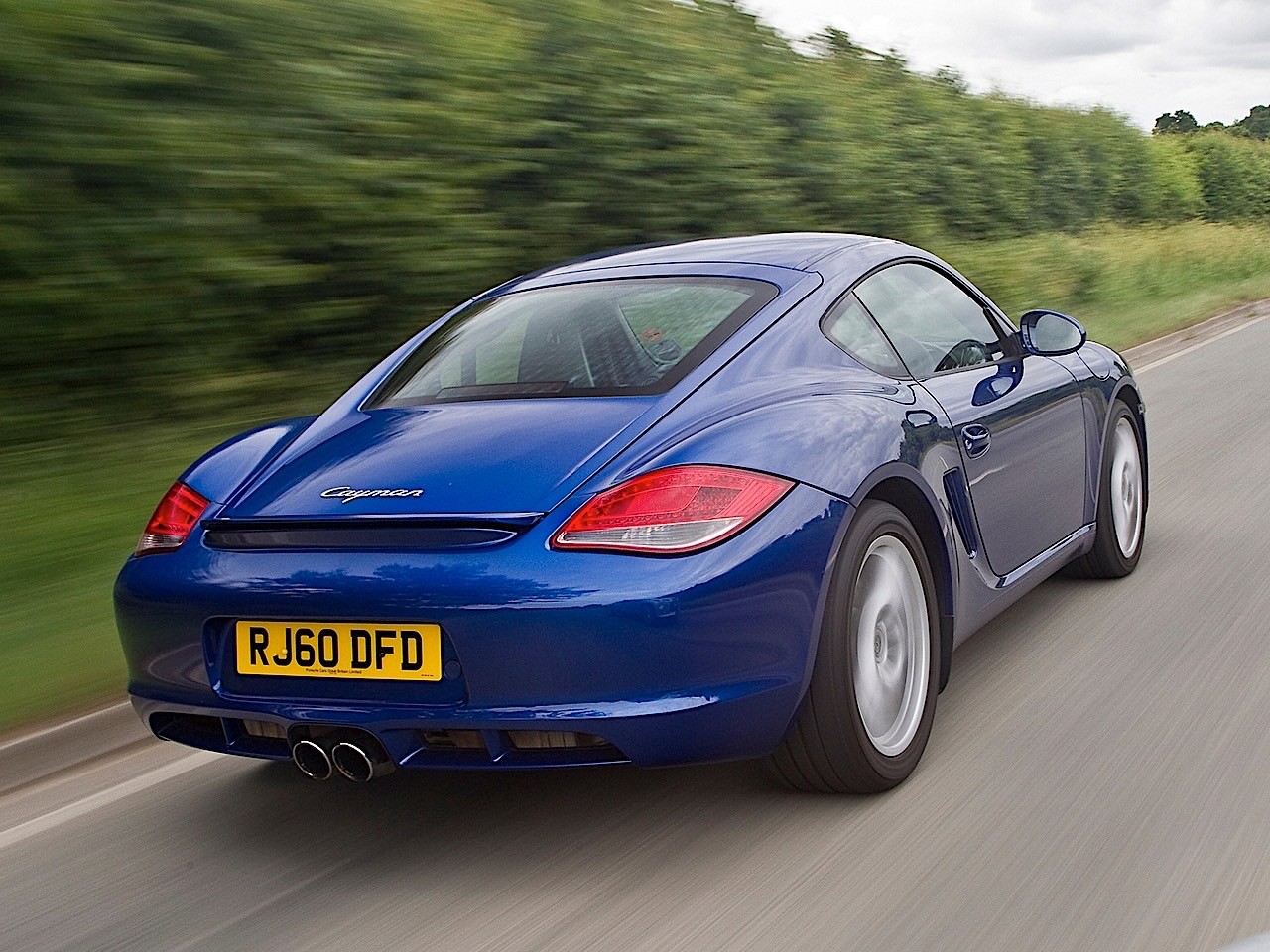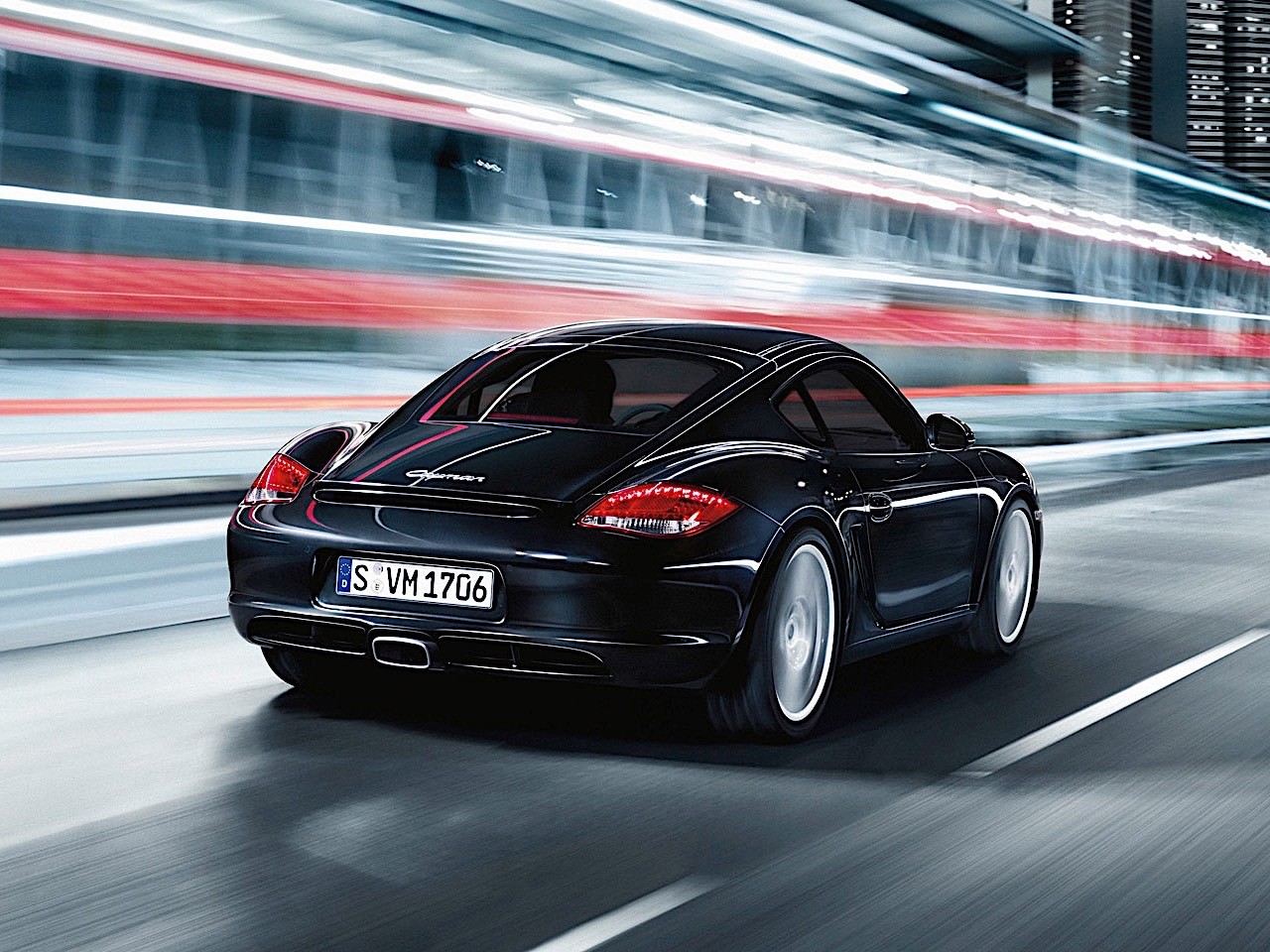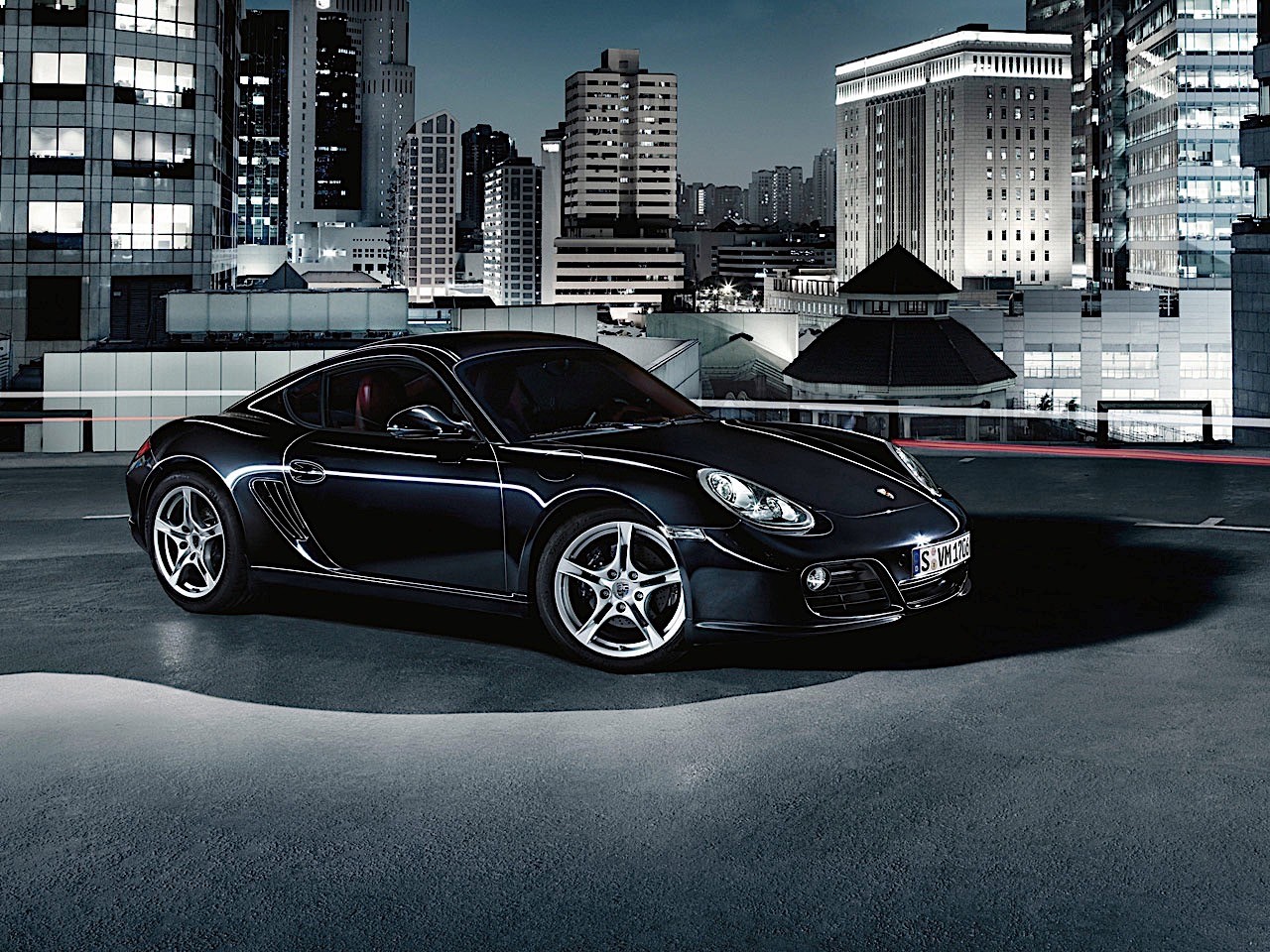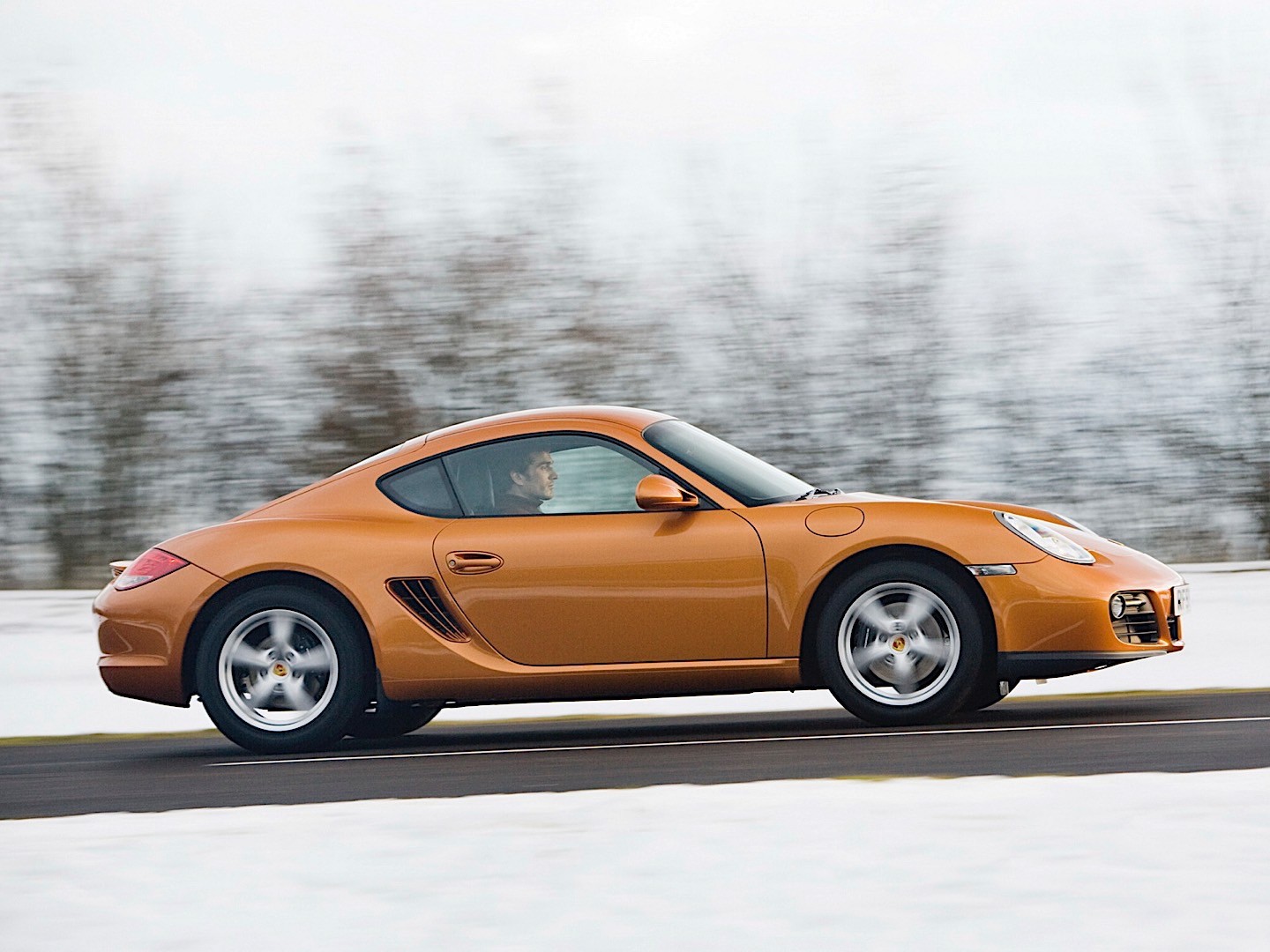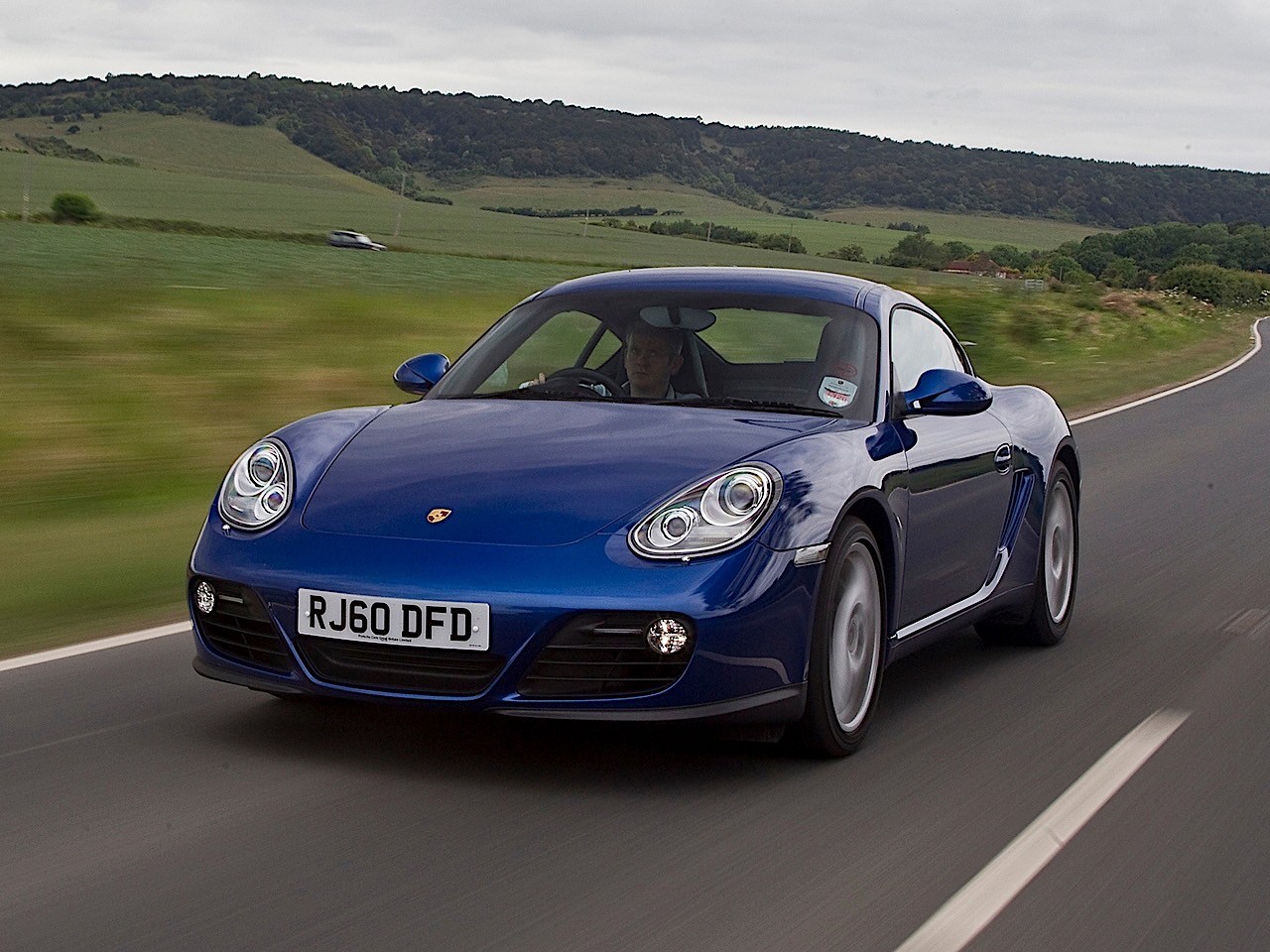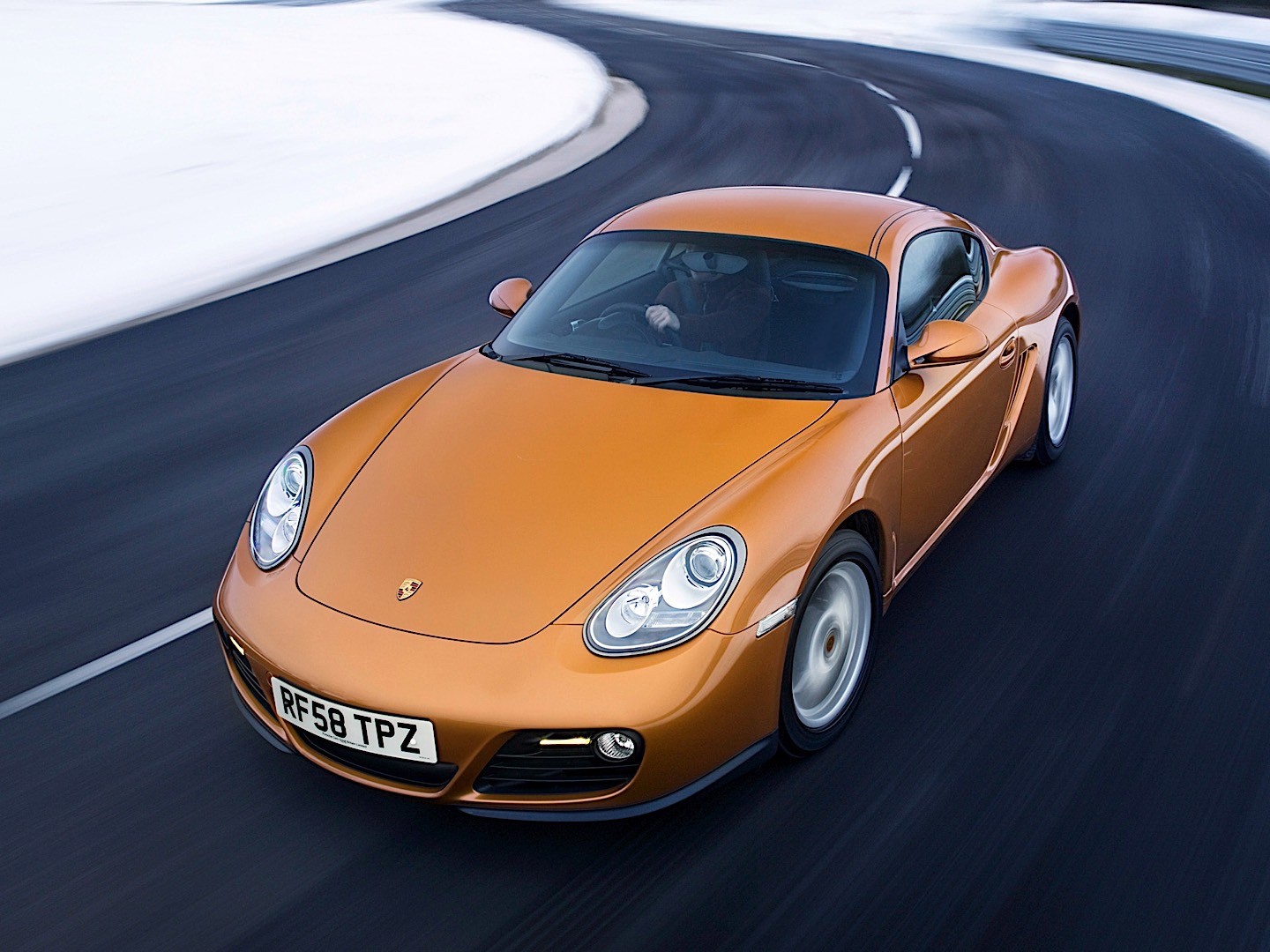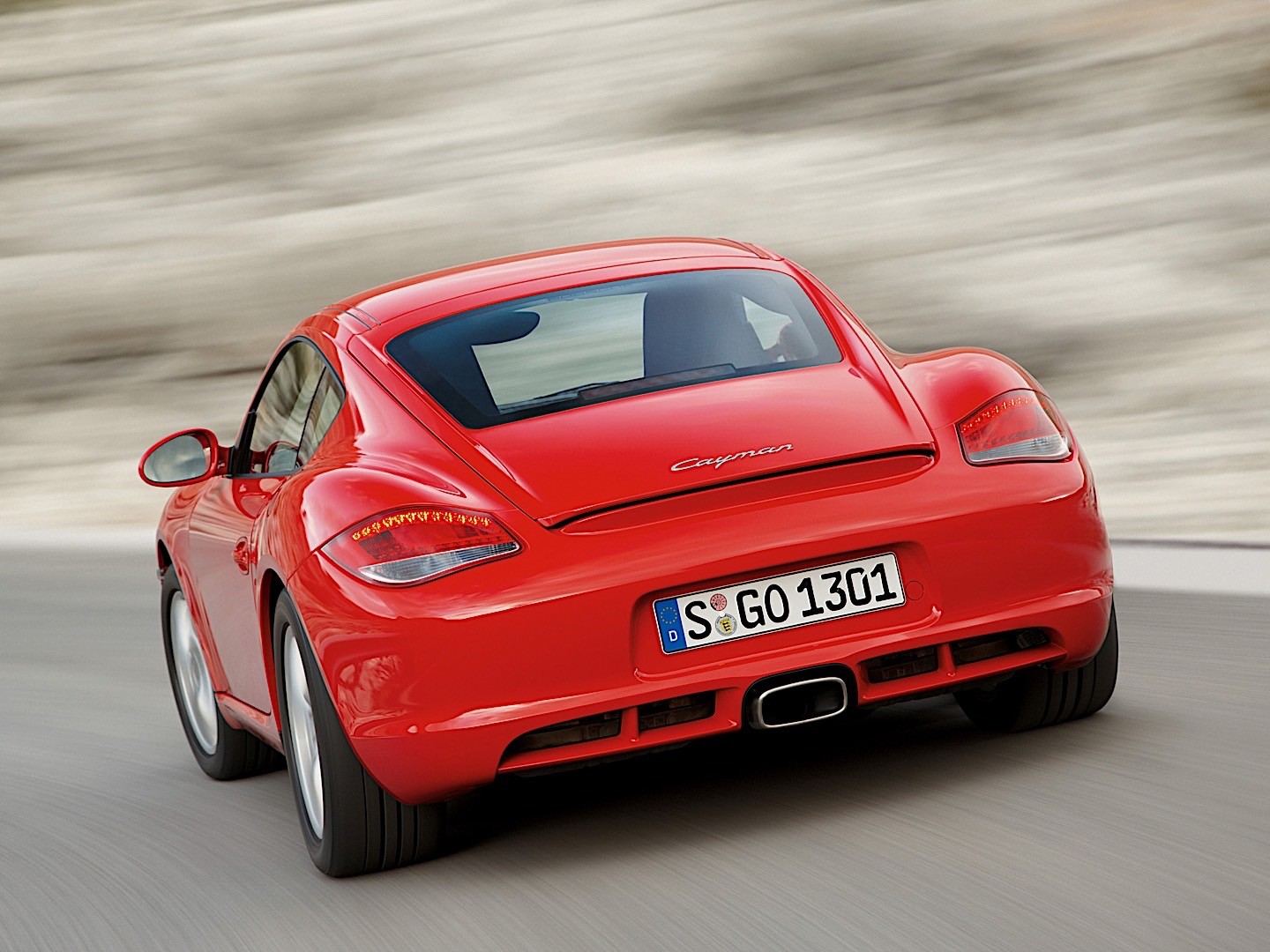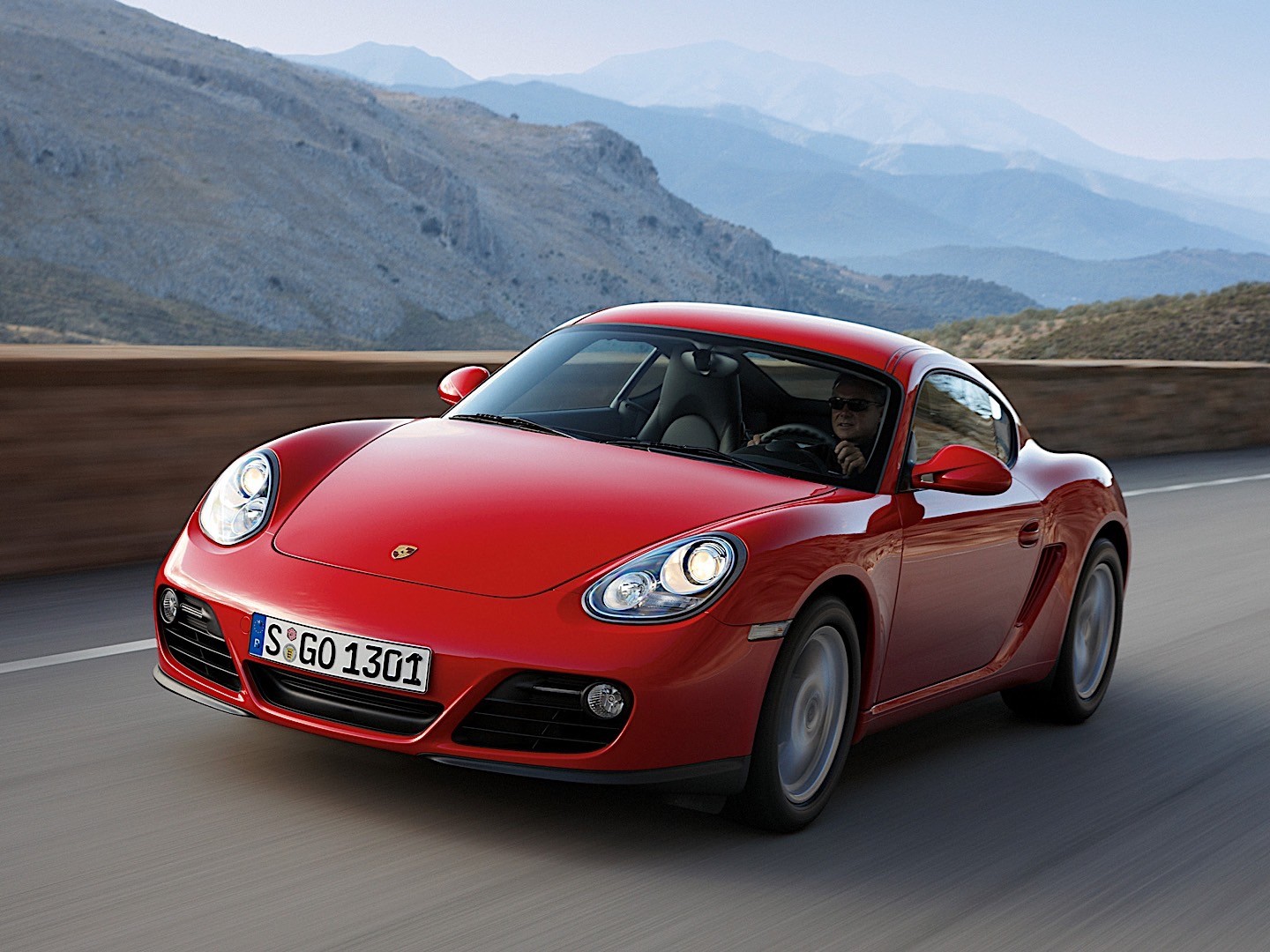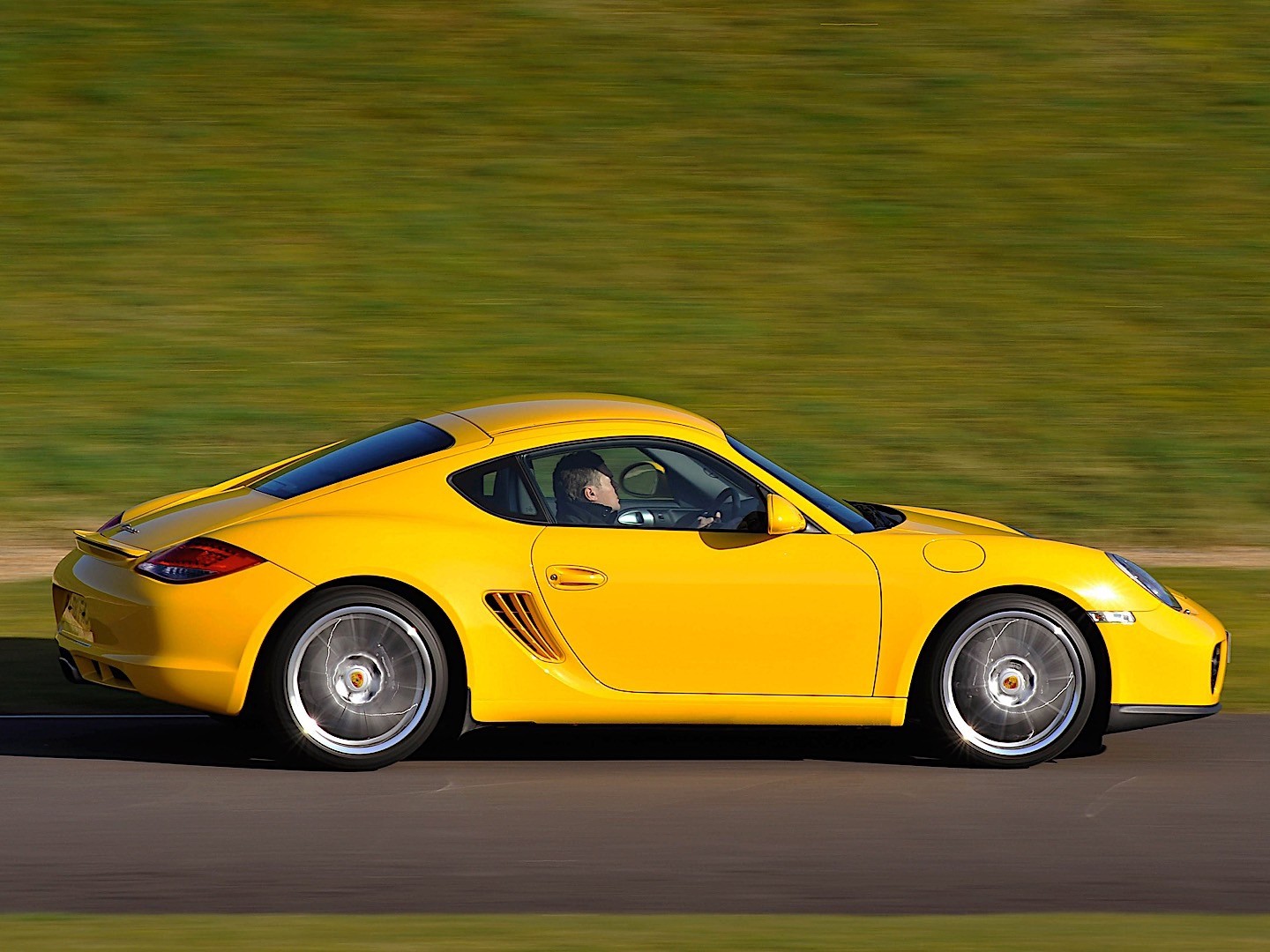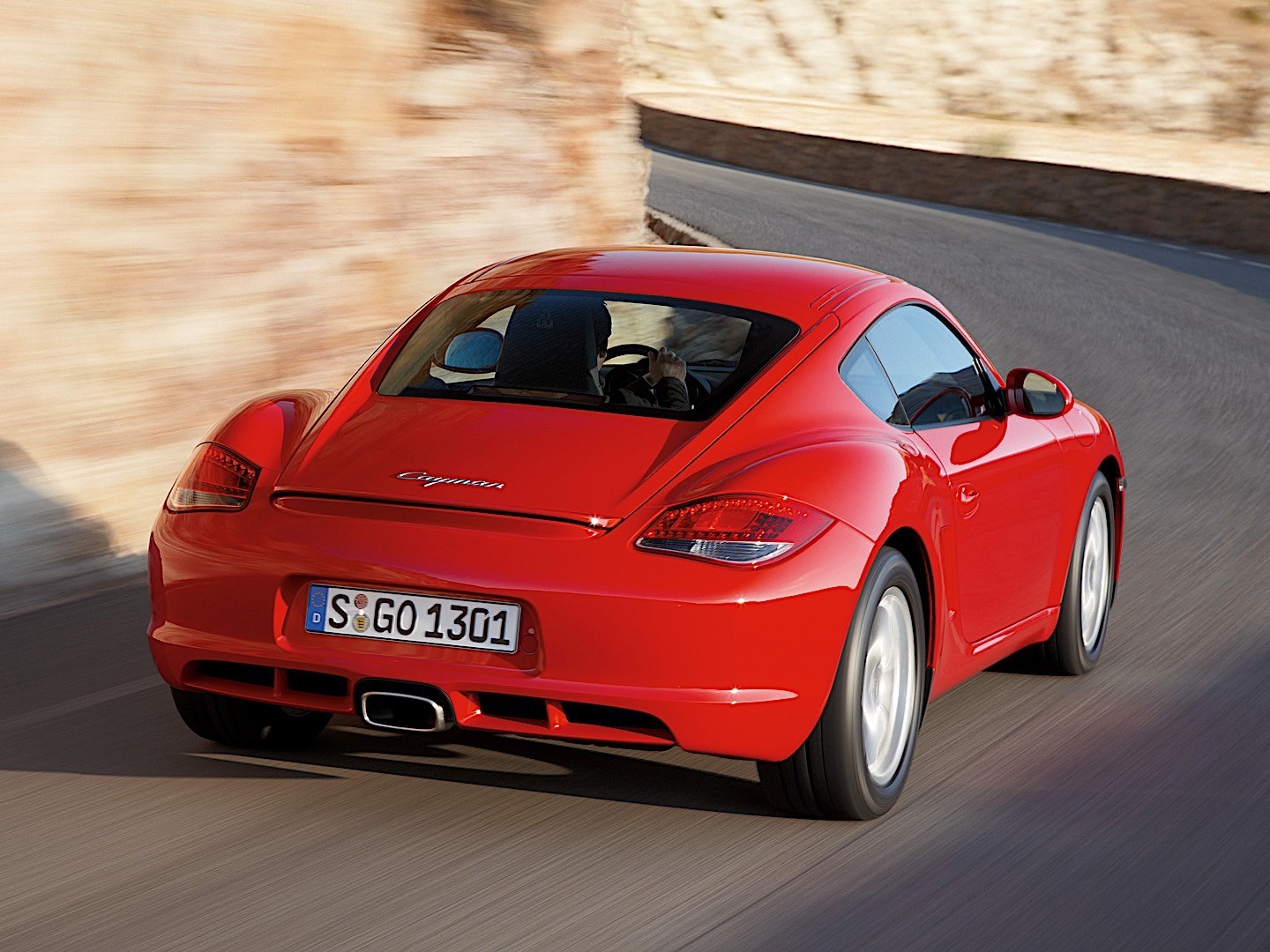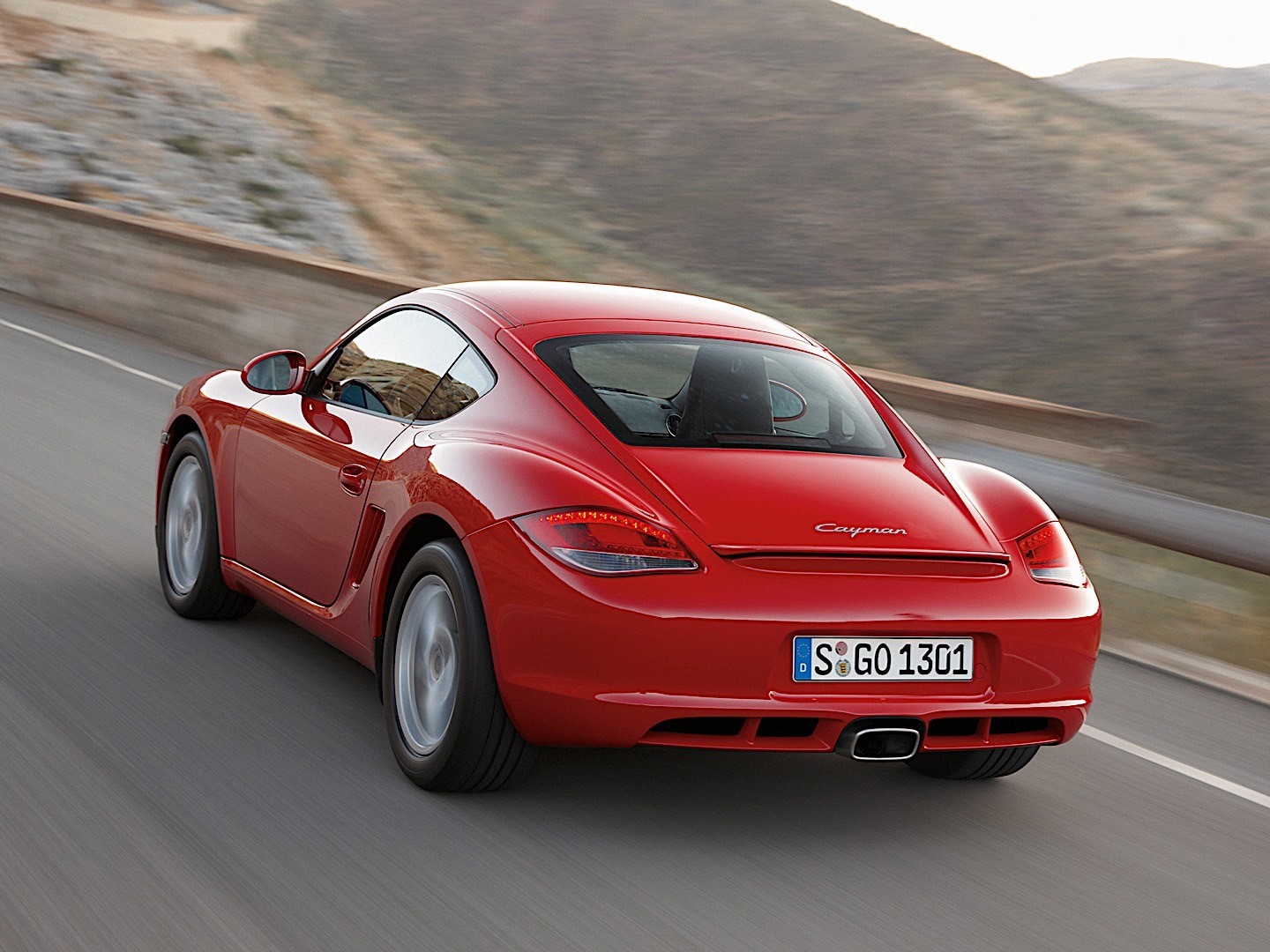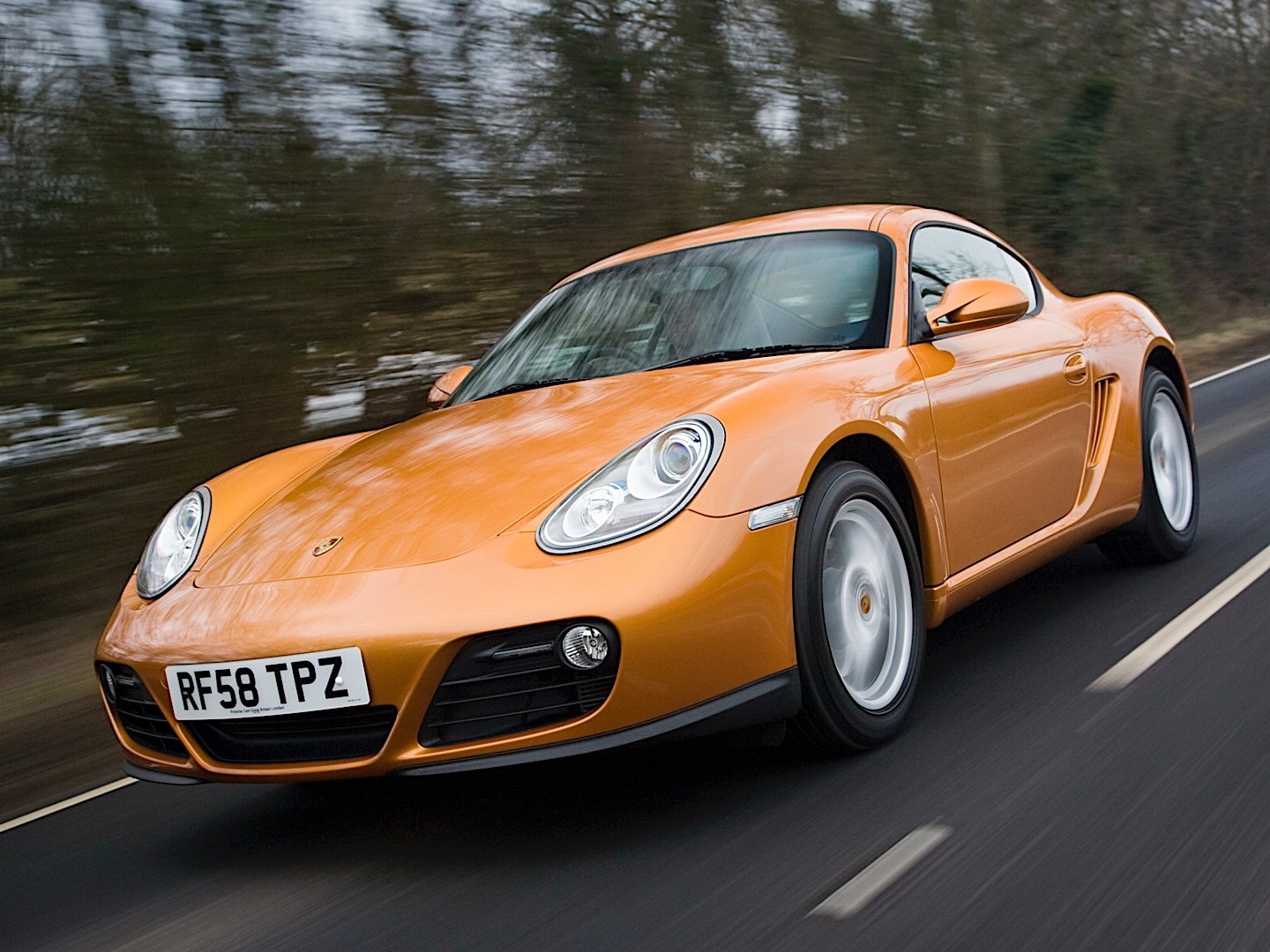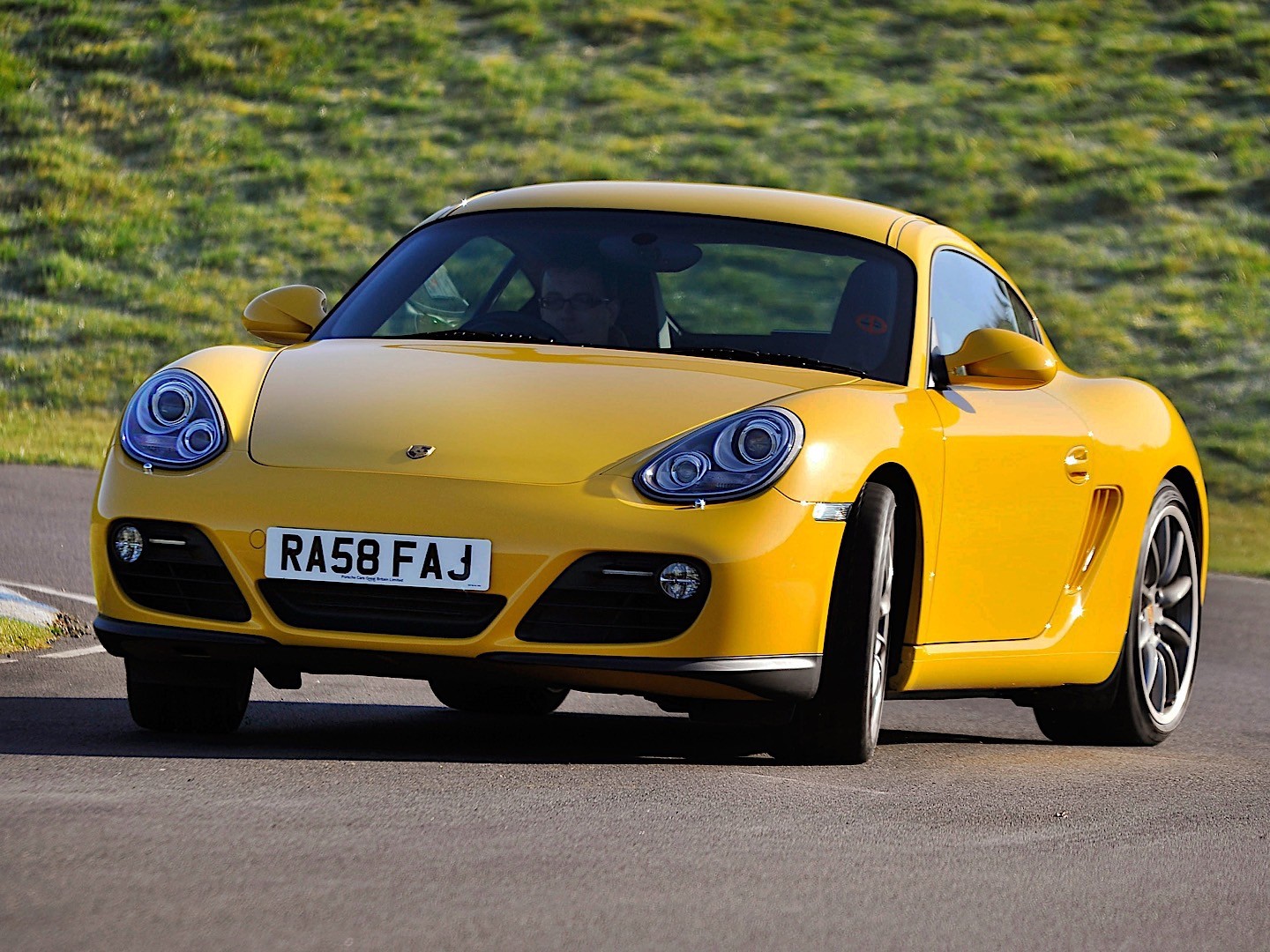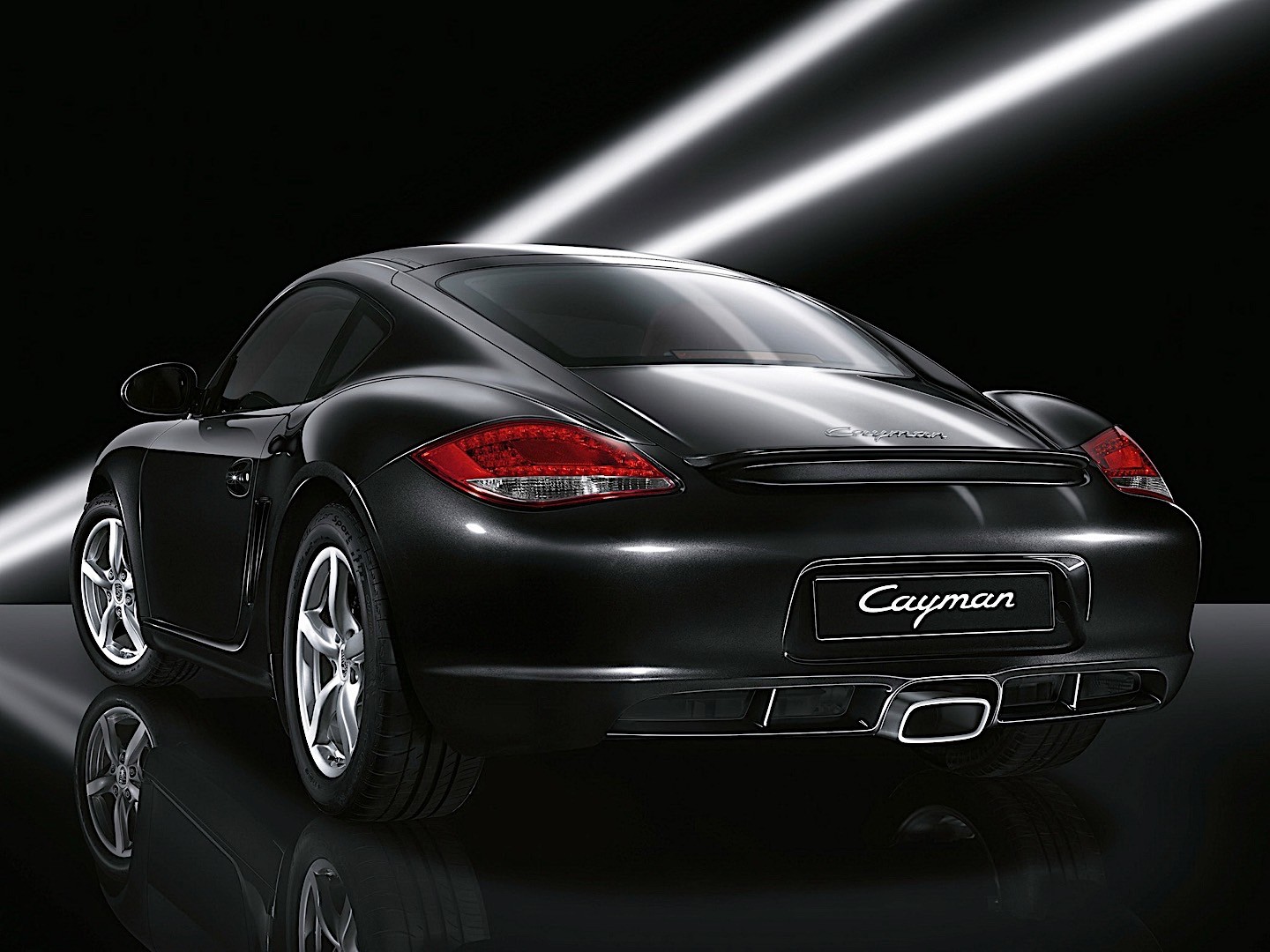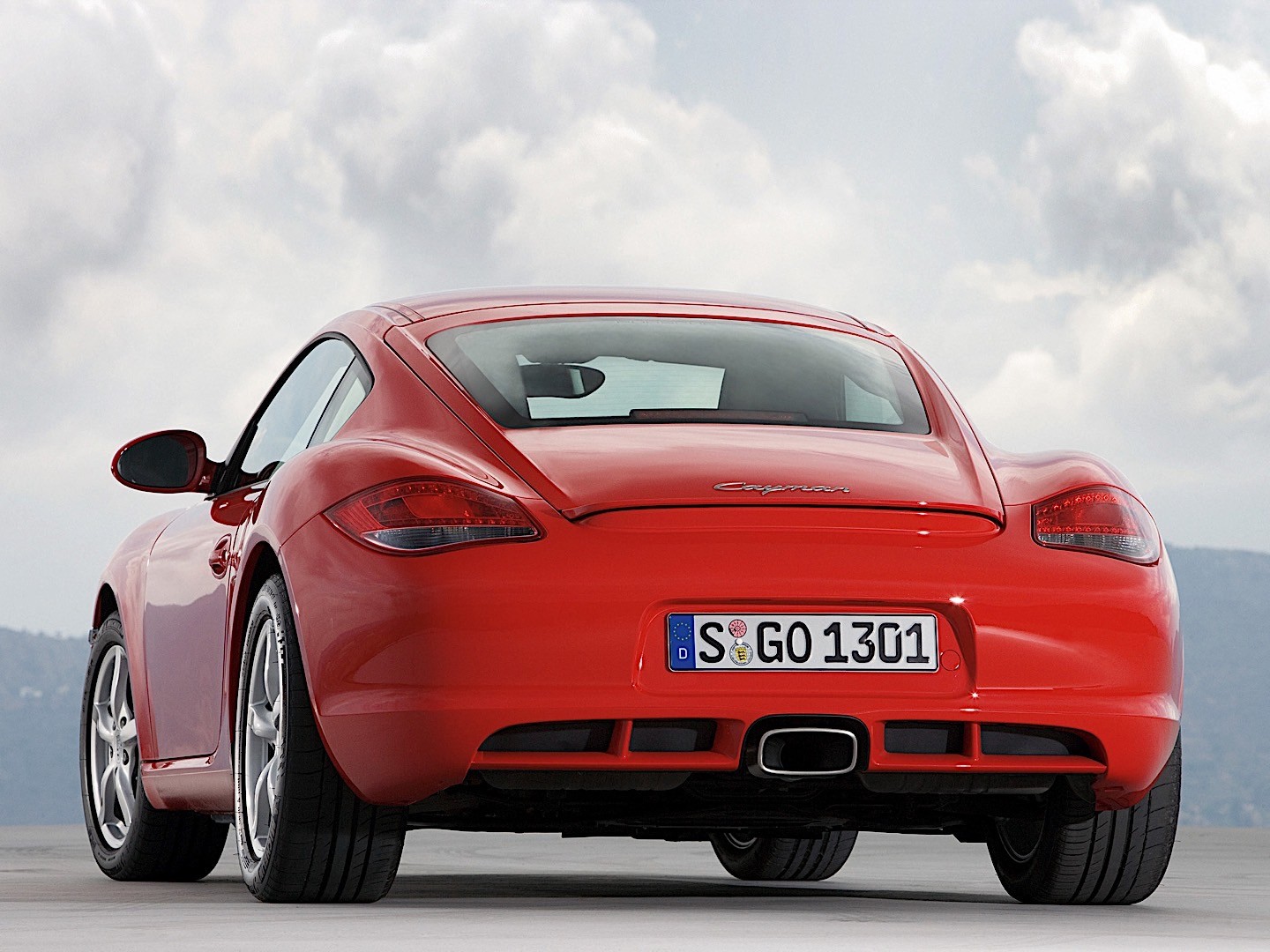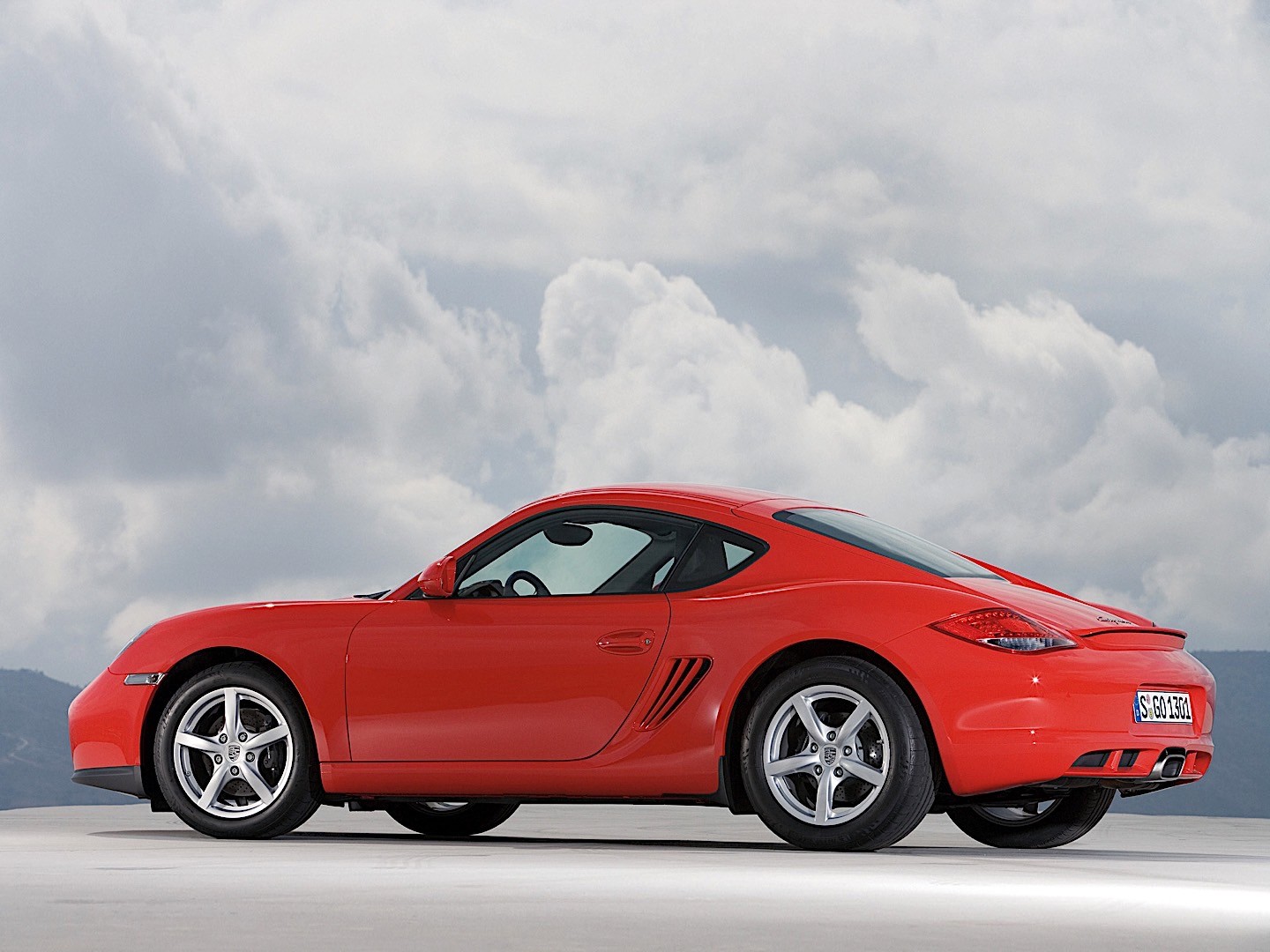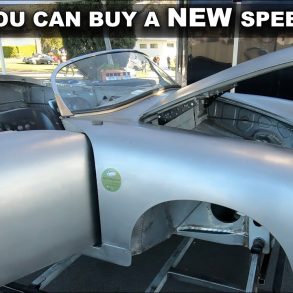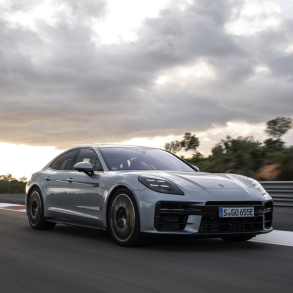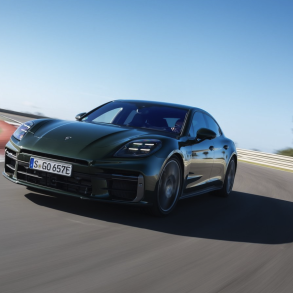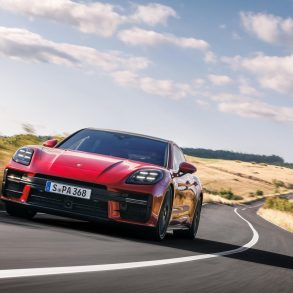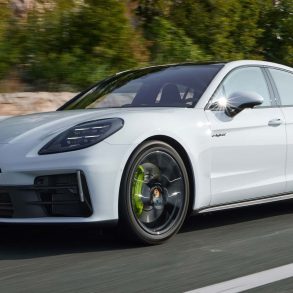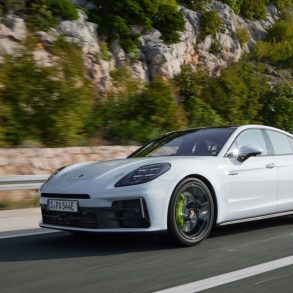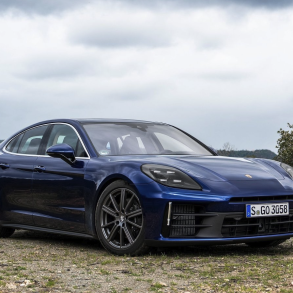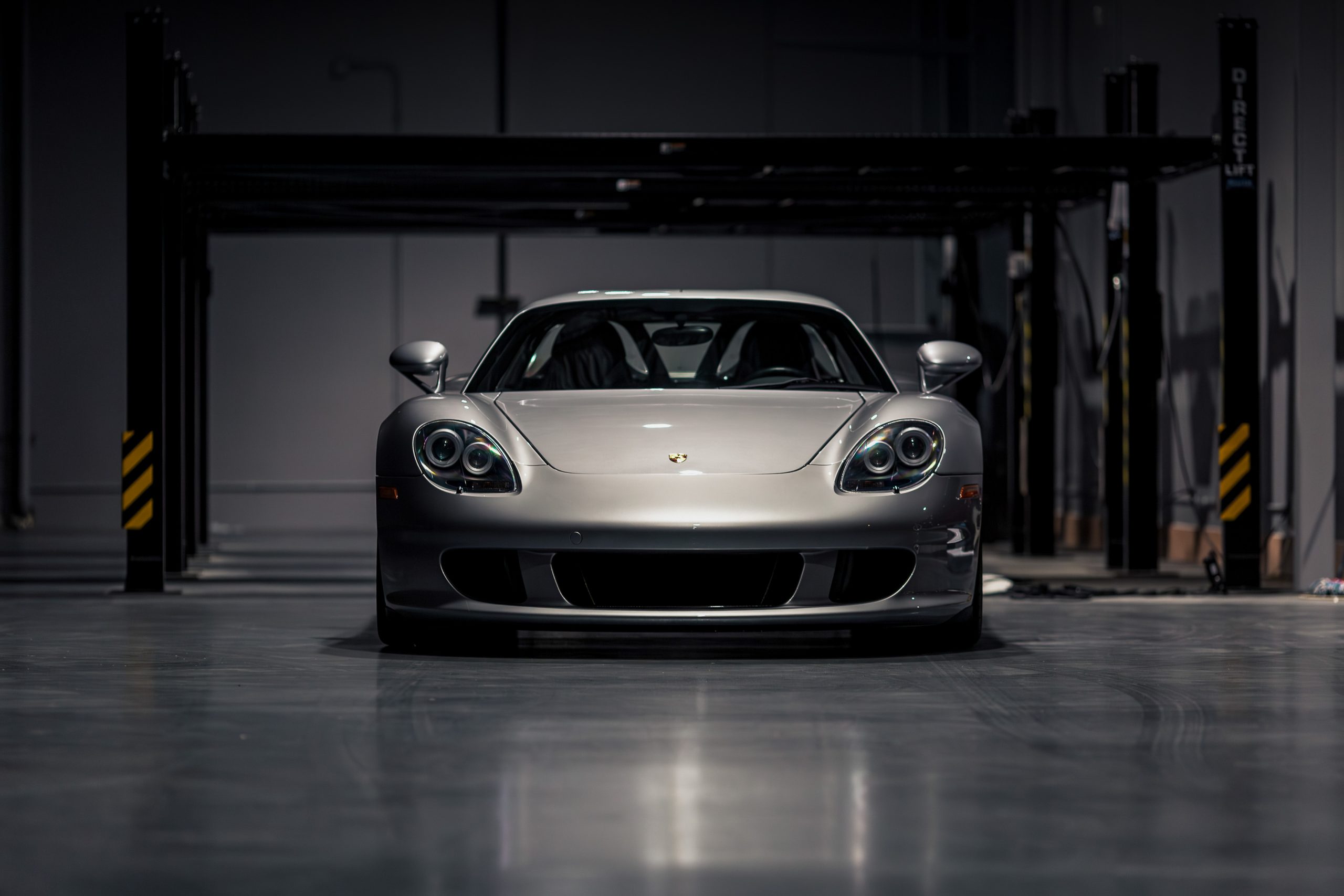(2009 – 2012) Porsche Cayman – Ultimate Guide
Four years after the introduction of the Cayman S, and three after the regular Cayman, the mid-engine sport-coupe from Porsche received an important update. The facelifted version of the Cayman offered a completely enhanced package. From the exterior to the interior, from the engine to the gearbox and suspension, it was reworked. It might be mistaken with a new model if the Porsche internal coding system wouldn’t be the same as on the 2006 Cayman (987C).
At the front, a new pair of headlights were installed, with a bigger lens for the main beams and the stationary lamps. The fog-lights were installed upper and on the outer side of the side air-scoops from the apron. A reshaped, and smaller, front grille was installed. In the back, the taillights were completely different and featured all red-lights with LED. The bumper received a redesigned diffuser with the exhaust tip kept in the middle.
Inside, the new infotainment unit with a 5” screen and MP3 compatible CD-player was featured as standard. As an option, a PCM (Porsche Communication Management) with a 6.5” touch-screen was installed for more options. The Bluetooth connectivity with the mobile phone was offered as an option for both versions.
The engine displacement was increased from 2.7 to 2.9-liter and received direct fuel injection. The result was a 20 hp increase over the non-facelifted version, while the fuel consumption remained the same. A big improvement was for the automatic gearbox, which was completely replaced by the new PDK (double-clutch) 7-speed unit. The standard version kept the 6-speed manual.
Pictures
Press Release
Three years after their debut, the Porsche Cayman and Cayman S are entering their second generation. Now the discreetly refined, even more sporting exterior houses a unique combination of new technologies with two brand-new power units: The Porsche Cayman now comes with a 2.9-litre flat-six developing maximum output of 265 bhp or 195 kW. In conjunction with the optional Porsche-Doppelkupplungsgetriebe (PDK), fuel consumption is reduced to a truly astounding 8.9 litres/100 kilometres, equal to 31.7 mpg imp – despite an even higher standard of performance on the road: Equipped with the optional PDK double-clutch gearbox, the Porsche Cayman accelerates to 100 km/h in 5.7 seconds, completing the same exercise with the six-speed manual gearbox now featured as standard in 5.8 seconds, Top speed, in turn, is 265 km/h or 164 mph and, respectively, 263 km/h or 163 mph with PDK transmission.
The Porsche Cayman S likewise boasts a brand-new six-cylinder boxer engine, in this case displacing 3.4 litres and again setting a new benchmark in terms of both fuel economy and performance thanks to direct fuel injection: Maximum output of 320 bhp or 235 kW ensures average fuel consumption with PDK of just 9.2 litres (equal to mpg 30.7 imp) and impressive acceleration to 100 km/h in 5.1 seconds. And with the six-speed manual gearbox coming as standard, acceleration to 100 km/h is in 5.2 seconds and top speed is 277 km/h or 172 mph.
Last but certainly not least, both models naturally fulfil the EU5 and ULEV emission standards.
New power units with superior efficiency
The two brand-new six-cylinder boxers now making their world debut in the Porsche Cayman and Cayman S are based on the new generation of Porsche engines only recently introduced in the 911 model series. On both engines less weight, less inner friction and lower moving masses add up to provide more power on less fuel. One step serving to boost efficiency, for example, is the optimisation of the engine’s oil system through the oil pump operating exactly according to current demand.
For the first time in this model series and, therefore, in the mid-engine segment as such, the 3.4-litre power unit featured in the new Porsche Cayman S comes with Direct Fuel Injection or DFI for short. With its homogeneous fuel/air mixture formation, DFI not only enhances engine efficiency by reducing fuel consumption, but also gives the power unit of the Porsche Cayman S an even more dynamic and sporting character the driver will feel immediately: With fuel being injected fractions of a second prior to the combustion process as such, the engine follows even the slightest movement of the gas pedal even more spontaneously and with extra power.
Porsche-Doppelkupplungsgetriebe for even greater efficiency and dynamic performance
Together with the new power units, Porsche’s engineers have also developed a brand-new double-clutch gearbox for these outstanding mid-engined sports cars coming as an option instead of the former Tiptronic S.
The interaction of the new engines with this new gearbox is quite revolutionary, both sports cars offering new records in acceleration together with even greater fuel economy. The Porsche Cayman and Cayman S equipped with PDK accelerate to 100 km/h 0.1 seconds faster than even a highly skilled driver shifting gears manually on the six-speed manual gearbox.
The progress ensured in this way is even more impressive when it comes to fuel economy now improved by up to 16 per cent: The new Porsche Cayman with PDK consumes just 8.9 litres on 100 kilometres, equal to 31.7 mpg imp under the EU4 standard. This equals an improvement by 1.2 litres or, respectively, 11 per cent compared with the former model featuring Tiptronic S transmission. The Porsche Cayman S equipped with PDK, in turn, consumes just 9.2 litres on 100 kilometres (equal to 30.7 mpg imp) – 16 per cent less than with Tiptronic S in the past. In standard trim with its manual gearbox the Porsche Cayman S likewise makes do with a very economical 9.6 litres, equal to 29.4 mpg imp.
Offering no less than seven gears, the new Porsche-Doppelkupplungsgetriebe (PDK) replaces the former Tiptronic S transmission. PDK is made up of two transmission units each connected via a separate clutch with the drivetrain. One transmission unit comes with gears 1, 3, 5 and 7 as well as the reverse gear, the other operates gears 2, 4 and 6.
PDK ensures a very fast and absolutely smooth gearshift without the slightest interruption of traction and pulling force, the clutch on one transmission unit being opened while the clutch on the other unit is closed simultaneously. In position D on the gear selector lever all this is done fully automatically, while the driver is still able to shift gears manually by means of the paddles on the steering wheel or the gear selector lever. In either case, however, the clutch engages and disengages without requiring any action on the part of the driver.
Dynamically refined, sporting look
The new Porsche Cayman models stand out at very first sight through their modified front and rear end as well as new headlights and rear lights featuring progressive lights technology and striking design for that dynamic look so typical of Porsche. The direction indicators are integrated in the new halogen main headlights reminiscent in their two-tube look of the Carrera GT.
Housed next to the round foglamps featured as standard, the new LED positioning lights come in light rod technology.
New bi-xenon headlights with dynamic curve lights and separate LED daytime driving lights are available as an option. In this case the white light diodes are arranged in a striking cross design giving Porsche’s mid-engined sports coupé a truly unique and unmistakable light profile.
The daytime driving lights take the place at the front of the car of the foglamps, which in turn are replaced without any disadvantages in terms of broad light coverage and illumination at the side by the optimised bi-xenon headlights.
The rear end of the Porsche Cayman sports coupé brand-new in design accommodates the newly designed rear lights where all red light sources are in LED technology. Tapering out at a sharp angle to the outside, the newly designed rear lights are integrated elegantly into the rear end of the car.
Sports Chrono Package as an option, Start-Off Assistant featured as standard
Both the Porsche Cayman and the Cayman S are available as an option with Porsche’s Sports Chrono Package further enhanced in conjunction with PCM Porsche Communication Management to provide the Sports Chrono Package Plus. And if the Porsche Cayman or Cayman S are equipped with PDK, the Sports Chrono Package Plus also offers the new Launch Control function as well as a special gearshift strategy for an extremely sporting style of motoring, both selected via the Sports Plus button. Launch Control is an assistance program for optimum acceleration from a standstill, enabling the Porsche Cayman and Cayman S equipped with PDK to accelerate from 0 – 100 km/h another 0.2 seconds faster than otherwise, the Porsche Cayman S thus requiring only 4.9 seconds for this standard sprint.
The new sports coupés come as standard with a Start-Off Assistant featured on both gearbox versions. This new feature gives the driver an even easier job under everyday driving conditions and prevents the car from rolling forwards or backwards when setting off on a gradient by automatically holding the brakes in position and then letting go in a controlled process after the driver has released the brake pedal. This enables the driver to set off smoothly and comfortably on a gradient without having to use the handbrake.
Chassis and suspension: very sporting and highly comfortable all in one
While the chassis and suspension of the Porsche Cayman remains the same in its basic concept, it has been adjusted in its set-up to the extra power of the engine and offers a significantly higher standard of all-round comfort despite the even greater dynamic performance of the car.
As an option both the Porsche Cayman and Cayman S may be fitted with PASM Porsche Active Suspension Management, an electronically controlled damper system. The big advantage of PASM is that it combines two suspensions in one: a sporting and comfortable suspension for everyday use and a particularly dynamic and sporting set-up for fast driving, for example on the track.
Compared with the standard suspension, PASM lowers the entire body of the car by ten millimetres or 0.39″. At the same time new PASM technology offers an even higher standard of suspension management, with even greater driving comfort combined with truly outstanding driving dynamics.
The Porsche Cayman comes as standard on 17-inch wheels, the rims are new in design and, measuring 7J x 17 at the front and 8.5J x 17 at the rear, are half an inch wider than on the former model. The tyre dimensions remains unchanged, at 205/55 ZR 17 up front and 235/50 ZR 17 on the rear axle.
The Porsche Cayman S comes as standard on 18-inch wheels in new design but with the same dimensions as before: 8J x 18 at the front on 235/40 ZR 18 tyres and 9J x18 at the rear on tyres measuring 265/40 ZR 18.
The newly developed tyres are a particlarly highlight. Made of PAH- (polycyclic aromatic hydrocarbon) free rubber compounds containing less harmful substances and not required by law until 2010, the new tyres allow a further reduction of tyre pressure on the rear axle to improve motoring comfort and at the same time decreasing the car’s roll resistance.
As an option the Porsche Cayman is available with Porsche’s new, even faster tyre pressure control system (TPC). Activated immediately when the driver opens his door, TPC is able, once the driver turns the key in the ignition, to start checking tyre pressure and present the results obtained in the instrument cluster within a few seconds.
Interior: thoroughbred sports car ambience all the way
Sophisticated materials, a very pleasant ambience and an equally pleasant surface touch confirm the premium position of Porsche’s sporting two-seater within the interior. The centre console now comes in elegant black and the standard finish is enhanced by the new CDR-30 CD radio with its easy-to-read five-inch screen and MP3-compatible CD player all featured as standard.
A Bluetooth mobile phone preparation kit comes as an option, with the radio providing hands-free operation as required by law. Further features also available are connections for an iPod and an MP3 player. And last but not least, the optional six-CD changer is now inte grated in the CDR-30 radio, taking the place of the CD changer formerly housed in the luggage compartment.
Features tailored to the driver: new PCM, ventilated seats
Available as an option, PCM Porsche Communication Management serving as the central control unit for all audio, communication and navigation functions now offers an even higher standard of performance and is more versatile and a lot easier to use.
The main feature of PCM is the touch-sensitive monitor increased in size from 5.8 to 6.5 inches. Compared with the former model, this reduces the number of keys to a total of just 16 in the interest of smooth and easy control.
Likewise available as an option, the navigation module obtains digital map data from a 40 Gigabyte hard disc. In conjunction with the universal audio interface again coming as an option, the user is able in this way to control external audio sources such as an iPod or USB stick via PCM.
Further features also provided by PCM are Porsche’s new voice entry and the electronic logbook. And again last but certainly not least, the Porsche Sound Package Plus comes complete with a radio, CD player and no less than nine loudspeakers all available as an option, just like the BOSE Surround Sound System complete with ten loudspeakers and a seven-channel digital amplifier set up specifically for the Porsche Cayman.
In conjunction with seat heating, the new models in the Porsche Cayman range are also available with ventilated standard or comfort seats. Active seat ventilation offers a comfortable and dry climate on the seat surface particularly in the warm season, with the seat bottom being ventilated at exactly the right points where the occupant is in direct touch with the seat.
Yet a further advantage is that seat ventilation may be operated in conjunction with the seat heating, ensuring consistent removal of moisture combined with a pleasant temperature on the seat surface.


